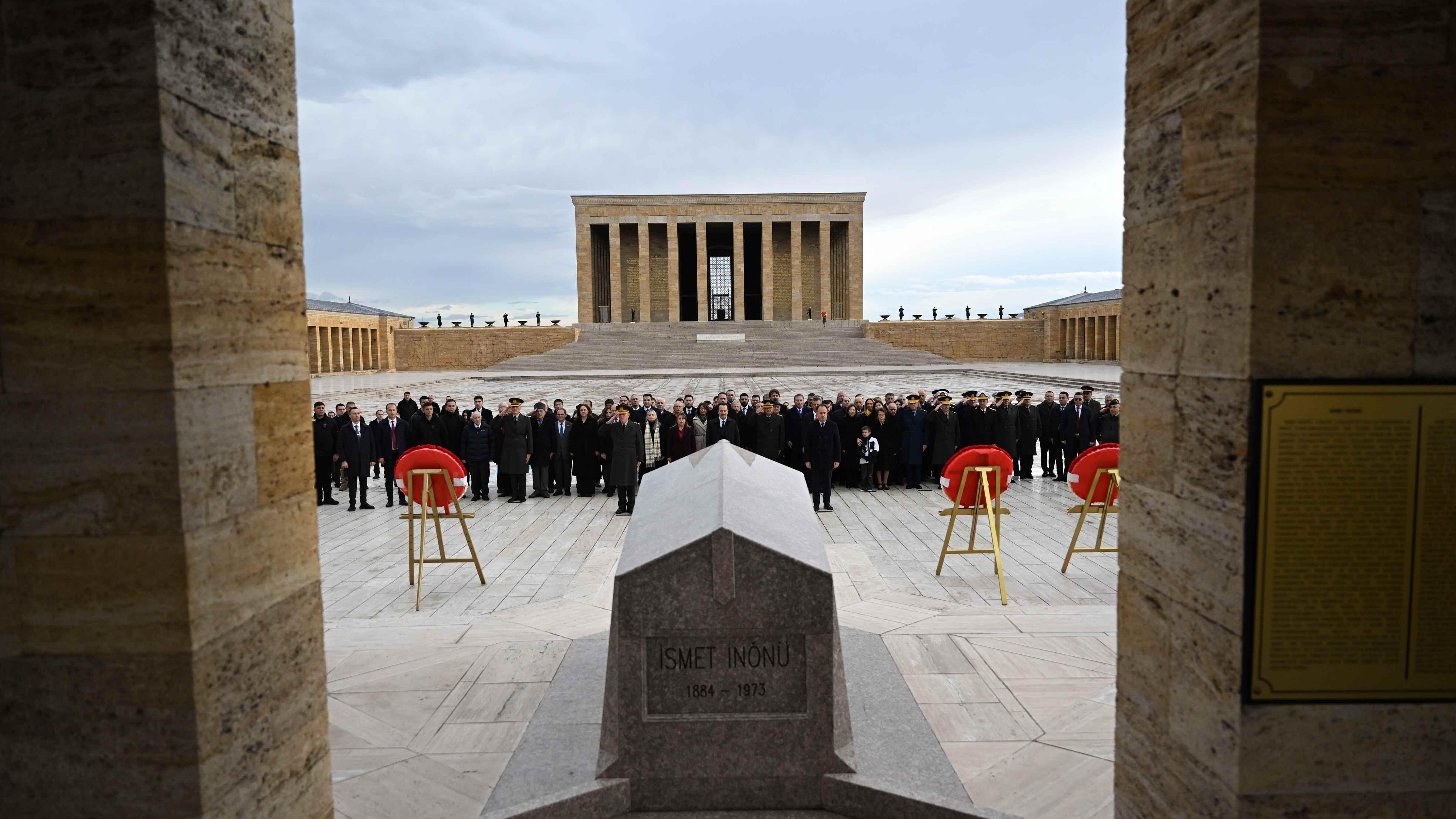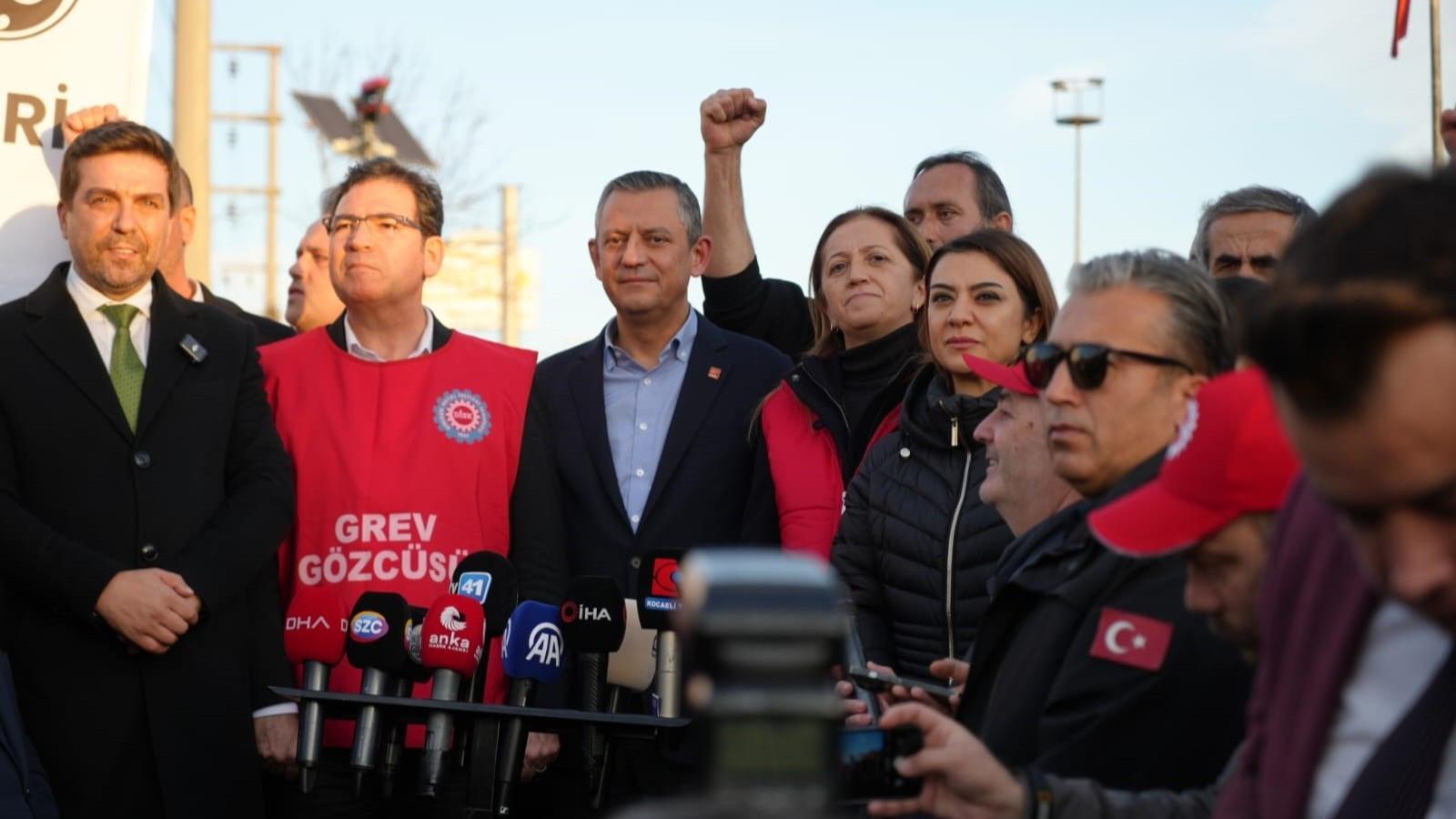First graders start new school term as age debate continues
ANKARA - Hürriyet Daily News

Education Minister Ömer Dinçer (C) attends a ceremony at Kazım Orbay Primary School in the Mamak district of Ankara on the first day of the new school year. The school year first greaders started yesterday. DAILY NEWS photo, Selahattin SÖNMEZ
Thousands of children attended their first day of school yesterday, as the debate over whether 66-month-old children are ready to begin school continued. Education Minister Ömer Dinçer assertively argued in favor of the newly introduced education system, saying the new system will help educate “individuals,” through a flexible and democratic structure.Dinçer attended a ceremony at Kazım Orbay Primary School in the Mamak district of the capital city of Ankara on the first day of the new school year, amidst heated criticism of the new system, known as “4+4+4,” which extends mandatory schooling to 12 years divided into three levels.
“With this new system we hope to enhance the education level of the society and raise the average length of education. We also hoped to raise the quality of education by creating a school environment that allows individuals to improve themselves,” Dinçer said, speaking at the ceremony.
The government’s education reform is under fire both from opposition parties and from civic groups, mainly for the early introduction of vocational classes – as soon as students complete four years of basic education – and for allowing students to opt out of school in favor of home study after eight years. Critics say the new system could encourage child labor and undermine the schooling of girls. Some critics have indicated that students in Western countries are asked to choose vocational programs no earlier than the age of 16.
On Sept. 3, Republican People’s Party (CHP) Deputy Chair Perihan Sarı harshly criticized the government’s education policies, saying the education system currently being created by the ruling Justice and Development Party (AKP) is “a system of social destruction.”
Despite the criticism, Dinçer said the changes would work in students’s favor. “The biggest change that makes today different from the past is the fact that our children have been reunited with a flexible and democratic structure [in the education system], which is in line with their interests, talent and expectations. It means that [children] will continue their evolution in line with their interests and talents without being cast in a certain mold and will be offered opportunities that will let them improve their inner potential.”
More than 35,000 new teachers
In a related development, 36,552 public school teachers were appointed to their posts in a ceremony held at the National Education Ministry’s (MEB) Şura Hall.
Preferential placement was applied for the 29 provinces where the need for teachers was greatest, and 22,000 teachers were appointed to these provinces for the new school year, MEB Director-General for Human Resources Hikçet Çolak said, speaking at the ceremony. Some 6,000 teachers have been appointed to posts in Istanbul, Çolak said, adding that this meets only 50 percent of the city’s need for teachers.
















